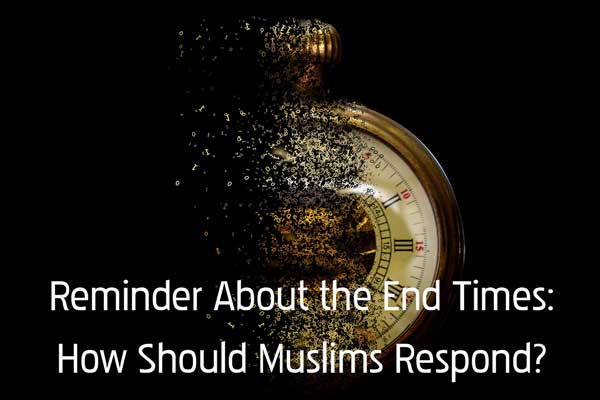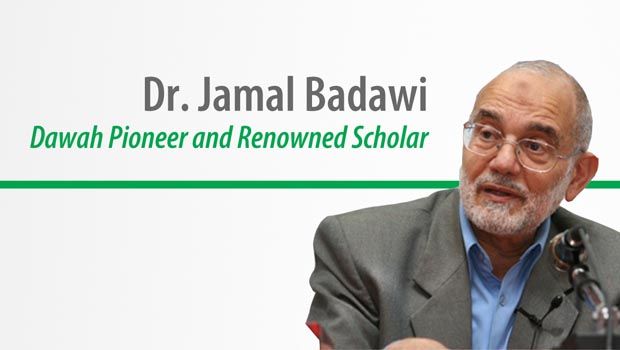When I was invited to write an article about preparing youth for marriage, I eagerly agreed. I was excited to tackle the topic, not because this has become my field of expertise as the subject of my doctoral research and the focus of a great deal of my work as a youth counselor, but because I saw an opportunity. I had an opportunity to address marriage preparation, one among a list of important topics focusing on the well-being of our youth, including mentoring, developing leadership, time management, and other skills for success, or finding balance in one’s life. However, rather than simply discussing the importance of premarital education and counseling, I decided to focus instead on the issue of moral decline as it relates to sexuality, an issue that is plaguing our youth and causing a detrimental ripple effect deep into the bedrock of young marriages. This article focuses on the hyper-sexuality and shifting views of gender identification that our youth are currently exposed to. We, as parents, educators, community leaders, and activists must come to understand these issues if we are going to protect our children and youth.
At an increasingly younger and younger age, youth are exposed to very mature content for which they are completely unprepared to process in the context of family, faith, and personal well-being
As Muslims, we don’t talk about sex. And we definitely don’t talk about sexuality or sexual orientation with our youth. The taboo topic that often results in tongue-tied parents and red-faced religious leaders is not discussed in a healthy way with youth who are already socially exposed to these concepts through a variety of mediums. In neglecting the discussion of these topics, we are left instead with a multitude of curious teens and young adults seeking to learn about sexuality from the many sources that do offer open dialogue: friends, books, magazines, school, television, and, of course, the Internet. While the information may be plentiful and easily accessible, without guidance, a teenager may be left to his or her own devices to make sense of a very grown-up topic. Yet, our faith clearly indicates that we must have conversations with our youth in preparing them for dealing with the real world, as the Prophet (peace be upon him) instructed that there should be no shyness in matters of religion when legitimately seeking knowledge.
Social Influences
Today, our youth are surrounded by books, movies, shows, and songs that glamorize intimacy removed from the sanctity of marriage. At an increasingly younger and younger age, youth are exposed to very mature content for which they are completely unprepared to process in the context of family, faith, and personal well-being. Songs by popular figures aim to normalize homosexuality and/or bisexuality, such as Katy Perry’s “I Kissed a Girl,” in which Perry sings, “and I liked it.” Popular family shows such as “Modern Family” present same-sex parents Mitchell and Cameron.
At the same time, books aimed at a young audience such as “See You at Harry’s” by Jo Knowles encourage exploration of teen and preteen sexual identification rooted in same-gender relationships. “Adult” books such as the infamous “Fifty Shades of Grey” by E.L. James completely subvert the idea of sexuality, presenting the content as romantic while filled with sexual and emotional abuse of women characters. Teenagers can covertly access this book despite warnings to stay away. Without a doubt, the impact of exposure to sexuality outside of marriage, and sexual lifestyle choices, is a corruption of the eyes, ears, and hearts, particularly in youth; and this is highly destructive to their developing worldview, sense of self and identity, and perceptions of marriage.
With every open conversation we have with a teenager, there are ten more conversations that we need to have. Education, communication, patience, love, and prayer—lots and lots of prayer—form the cornerstone of open dialogue with our youth
Every day, we see media icons such as Caitlyn Jenner (formerly known as Bruce Jenner) who are portrayed as heroes for choosing to “become” a gender they are more comfortable with, while the famed offspring of that same notorious family (Kim, Khloe, Kylie, and the other Kardashians) consistently flaunt their hyper-sexuality in the grossest form of shameless media exposure. Early teens and preteens are encouraged to explore not only what they will be when they grow up, but also what gender they select, as if it is a choice as easily negotiable as dying your hair or wearing colored contacts. Gender is currently viewed by pop culture as completely unbound by biology and genetics, resulting in the emergence of the cisgender identification (referring to the alignment of one’s gender identity with one’s biological sex assigned at birth) so as to normalize the transgendered choice.
What can help our youth withstand the tide so as not to be swept away by the appeal to satisfy every fleeting desire? In a world that constantly preaches individualism and unbridled fulfillment of self, children are taught to feed the nafs al-ammara (base, lower self), to satisfy all worldly desires regardless of moral or religious reservations. This message of satisfying the self at all times and at all costs is a problematic contradiction for Muslims who believe in controlling desires of dunya as the ultimate form of submission to the will of Allah (SWT). But this message pales in comparison to the glitzy appeal of a world that advocates for the unfettered attainment of all desires. Consistently raising the bar on what will satisfy the nafs becomes a major factor in the lack of contentment pervading the marriage realm. When presented with a buffet of lifestyle choices, the singular distinction of monogamous marriage is seen as restrictive and confining. Marriage then becomes synonymous with monotony rather than being viewed as a path towards tranquility, stability, and, according to hadith, completing “half the deen.”
Opportunities
As Muslims in the West, we find ourselves working so hard on the constant defense of our faith from threats external to our communities that we sometimes lose sight of what threatens our youth internally. At one time, parents could easily warn their children about staying away from relationships with the opposite gender, which of course often occurred anyway but were considered scandalous when news inevitably reached the ears of the community. Yet, the parents of today have a whole other slew of sexual stances and definitions to warn their children about, things that they themselves may not fully understand. Trying to keep up with the constant barrage of LBTQ+ messages and identities from transsexual to pansexual to everything in between, is difficult for a generation that understands sexuality and gender identities as their parents and grandparents did, and their religion sanctions. Despite the religious rejection of these identities and actions, the exploration of such identities among our youth is growing at a terrifyingly rapid rate. The Internet provides an ever-changing menu for a variety of identifications, and our youth, decidedly more tech-savvy than us, are exposed to this confusing and harmful phenomenon.
One may argue that the youth of the ‘60s, ‘70s, and ‘80s also grew up in a sexually permissive society and that the generation of that era turned out just fine. In those days, however, family values were still at the core of society and children were not indoctrinated to believe they had a choice in sexual orientation and gender identity. Traditional families and gender roles still held sway.
As a Muslim community, we have yet to find the antidote for exposure to today’s sexual permissiveness, or the words to address it. We prefer to remain reticent on the topic of gender identification and homosexuality. Unlike the vocal faith groups who actively speak out against same gender relationships and the breakdown of the traditional family, we tend to tiptoe around the situation and prefer not to discuss something that we feel has nothing to do with our community. We try to avoid “planting the seed” in the minds of our youth without realizing that the seed has already been planted by others and that our reticence causes more confusion than clarification.
Into the Future
Protecting our youth in a gender-fluid and hyper-sexual society begins with talking to our own children. It begins by bringing down the barriers and allowing our youth the safe space needed to discuss with us openly what may be on their minds, what they are confused about, and what challenges they face as they attempt to navigate psychologically and emotionally through such turbulent times. Our work continues with identifying the factors that may influence our children and promoting a healthy consciousness of what a traditional faith-based relationship looks like. We must model purposeful, mature, and peaceful living in our own relationships. We are the stewards of the coming generation. With every open conversation we have with a teenager about the topics discussed in this article, there are ten more conversations that we need to have. Education, communication, patience, love, and prayer—lots and lots of prayer—form the cornerstone of open dialogue with our youth.
What More Can We Do?
After understanding the identity threats that impinge on our youth’s emotional, physical, and spiritual well-being, our natural response is “what more can we do?” The seemingly insurmountable mountain can be scaled by opening the lines of dialogue and discussion with our children. Here are some suggestions:
- Begin discussion with your children from a young age about biological elements of the body. Don’t let their natural curiosity lead them down the path towards asking the wrong people or looking for information in the wrong places.
- Refer often to the Quran. Teach your children the verses of Surat Ar-Rum regarding marriage and the creation of males and females as mates for one another, and other verses from the Quran that emphasize the beauty and sanctity of the marital relationship.
- Keep hay’aa (modesty) as a central reference point in your home. Teach youth what modesty in action, in thoughts, in glances, and in interactions means, in addition to modesty in dress. Emphasize the importance of hay’aa for both girls and boys.
- As your pre-teens and teens begin to enter the world of changing emotions and fluctuating hormones, be sure to discuss with them the difference between desire and action and how they can mitigate the emotions that they may not yet understand fully.
- Help your children to recognize and fully appreciate the beauty of tawbah (repentance) and the love that Allah (SWT) has for those who sincerely repent; also talk about His love for those who are tested with desires but guard against sin because of their love for pleasing Him (SWT).
- Use the words of the Quran regarding our prophets to exemplify guiding principles that can help protect our youth. For example, reference the story of Prophet Yusuf (pbuh) and how he was pulled by a woman’s desire, and he preferred to be put in prison than to be placed in that position. Explain to them also the situation of Prophet Lut (pbuh) and how he stood against those who acted in a way that was not pleasing to Allah (SWT) in trying to satisfy their lustful desires.
- Finally, make a great deal of dua for the protection of your children and all the children of the ummah. Let your children see and hear you making dua often, and talk to them about the power of dua. Let them know that your dua is sincere and heartfelt, coming from a place of love for Allah (SWT) and for them.
Finally, if you find it difficult to have these conversations with your children or teens, find a trusted mentor, an older sibling, or a youth group leader who can help guide your child in the right direction. May Allah (SWT) guide us all and guide all our children to the straight path. May He protect our coming generations from the fitnahs that we see today and the ones that we may not yet see.





